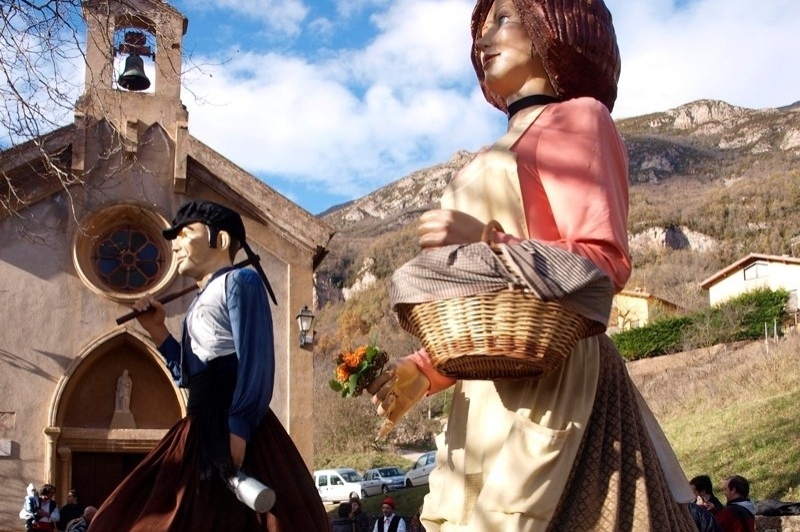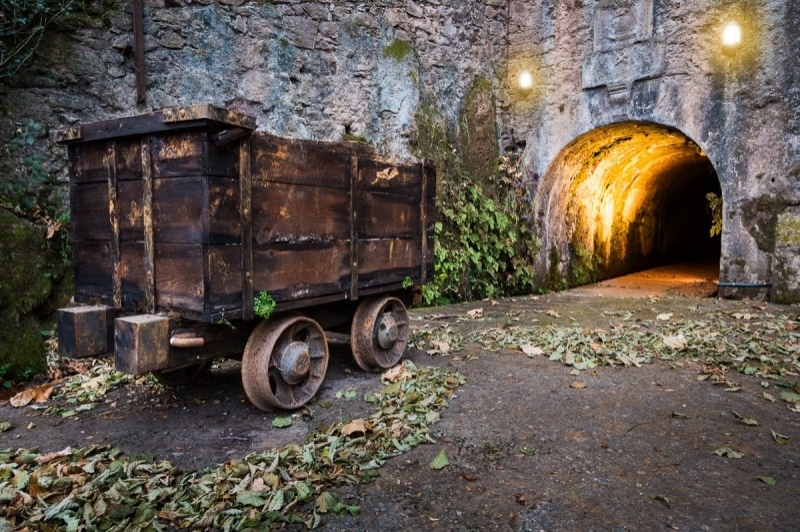Ogassa
In the center of the Ripollès region, Ogassa borders the towns of Ribes de Freser, Pardines, Vilallonga de Ter, Camprodon, San Juan de las Abadesas, Ripoll and Campdevànol. It is made up of five neighborhoods, of which only two are urban centers, Santa María de Vidabona, and Surroca de Baix and the El Prat del Pinter neighborhood. This municipality is known in Catalonia for the coal mines that were exploited between the end of the 18th century and 1967. These were responsible for the arrival of the railway to Ripollès in 1880, in order to quickly transport coal to Barcelona.
Another economic factor that helped Ogassa grow were the Balaguer and Benet cement industries.
It also has other tourist attractions such as the great diversity of vegetation, thanks to its large area, which offers the possibility of walking through forests of red pine, oak, beech and birch. In addition to being able to contemplate areas of scrubland and areas of high mountain pasture, the territory promotes having a diversity of flora that contributes to the existence of a very varied fauna. All of this makes up exceptional and unique landscapes, making this area an idyllic place. The caves and grottoes are part of all its attraction that attracts nature lovers, since exuberant vegetation is created.
The municipality is crossed by numerous torrents, where the abundance of water is evident with different sources that spring up within the municipality, called La Nina, la Mona, la Dou, Can Xisquet, el Minero, del Freixe and la Font Gran, which They give body to the people. La Nina in 1987 allowed the population to receive a distinction as "Villa in flower of Catalonia".
An extensive orography allows the hiker to adore the mountains with their respective peaks and enjoy several emblematic points of this location, such as the Serra Cavallera, located to the north of the municipality. Where the most important mountains of Ogassa are located. The most emblematic peak, the highest in the mountain range and at the same time in the interior of Ripollès, is Taga (2035m), with the characteristic nipple shape, a point from where you can contemplate the Ensija mountain range, Pedraforca, the mountain range del Cadí, Puigllançada and Tossa de Alp. Other summits but of lower altitude would be Puig Estela (2007m), Mount Coma de Olla (1930m), Mount Pla de les Pasteres (1893m) and Portella de Ogas (1790m). On the other hand, just as important as the rest, this municipality has the Sant Amand mountain (1854m), a reference point for hikers, located between the Coll de Jou, to the north, and the Coll de Coronas or Saltor., at noon. Its visible presence from the Vic plain makes it known as El Balcón del Ripollès.
The municipality has, in the subsoil, stone materials formed in various geological periods. So, for geology fans, Ogassa is their paradise, due to the genesis of coal linked entirely to fossils, and this town is full. This fact means that Ogassa has a series of monumental details that encompass its terrain, where you can see peaks, fossils and itineraries that perfectly complement this town.
For the most curious, those who like history or the hiker who is interested in knowing the most remote roots of the municipality, Ogassa gives the opportunity to delve into the medieval period thanks to all the architectural heritage based on numerous Romanesque churches. Enjoying all the most intimate and personal architecture that these parishes display makes it essential to visit San Julián de Saltor (11th century), Santa María de Vidabona (13th century) and the chapel of Santa Bárbara (1881 to 1882), the which was built by the miners to protect them from the cumbersome mining task. Other interesting places are the church of San Martí de Ogassa (XI) and San Martí de Surroca (XI).
Livestock farming has been and is one of the main sources of income for the municipality's economy. Most of the cattle graze in the communal mountains of Ogassa and Surroca. There is a variety of livestock, but cows and sheep are what draw the Ogassenc landscape. In summer, they graze in the upper part of the municipality, however, in winter they can be seen on the lower slopes.
However, the festival is the most important event in the town, which takes place on the first weekend of December. There is no shortage of masses, sardanas, typical dances and concerts.
The festivals that were celebrated until the formation of the mining centers are related to the primitive churches of the municipality. The brotherhood festival is celebrated in summer and lasts three days, where the different activities are designed for all ages and where children and adults alike enjoy.
places of interest
- The Miner's Fountain
- The Freixe Fountain
- The Big Fountain
- Church of Sant Julia de Sator
- Church of Santa Maria de Vallbona
- Chapel of Saint Barbara
- Church of Sant Martí Surroca
- The Fossils
- The top of Taga
- Coll de Jou
- The top of Sant Amand
- The shelter
- The heritage linked to coal mining operations
Nearby routes
See all routes »What to do
Oxineu Guies de Muntanya
Ribes de Freser (a 9.9 Km)Oxineu specialises in mountain guides, adventure sports training and a ski school,…
Museu Etnogràfic de Ripoll
Ripoll (a 10.3 Km)The first museum in Catalonia dedicated to ethnography. Through the Ethnographic Museum…
Terra de Comtes i Abats a Ripoll
Ripoll (a 10.3 Km)Terra de Comtes y Abats offers you a lot of proposals to…
Where to eat
La Santa Restaurant
Ribes de Freser (a 10.4 Km)Our fires cook KM0 food obtained from the earth using traditional methods.…
Restaurant el Pont 9
Camprodon (a 8.6 Km)A restaurant serving humble and simple cuisine, where you can enjoy the…
Braseria Les Comes
L’Esquirol (a 25.9 Km)Located on the premises of the Anigami Adventure Park, they offer menus…
Restaurant Dachs
Les Llosses (a 18.7 Km)Restaurant Dachs offers versatile spaces for celebrations in Les Llosses, with rustic…
Where to sleep
Casa de colònies Mas Cabàlies, Fundesplai
OgassaMas Cabàlies is located in the municipality of Ogassa, in the Ripollès…
Hotel Rural Les Planes del Grau
Sant Joan de les Abadesses (a 4.1 Km)Enjoy a rural hotel with a sober and minimalist design but at…
Hotel Cims de Camprodon
Camprodon (a 9.1 Km)The Hotel Cims Camprodon is located right in the center of Camprodon,…
Angelats Hotel
Ribes de Freser (a 10.4 Km)Surrounded by a thousand-year-old forest, with wide trails to walk, the 20…






















